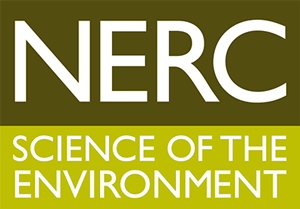Critical raw materials
Global concerns are growing over the availability of secure and adequate supplies of the minerals and metals needed by society. Consumption of most raw materials has increased steadily since the Second World War and demand is expected to grow in response to the burgeoning global population, economic growth (especially in developing countries) and the requirements of new or environmental technologies, such as renewable energy and electric vehicles. Of particular concern are the 'critical' raw materials, so-called because of their growing economic importance and high risk of supply shortage.
Defining critical raw materials is not straightforward and many approaches have been used. One of the most commonly used lists is that produced by the European Commission, which defines the following as critical:
- antimony
- beryllium
- cobalt
- fluorspar
- gallium
- germanium
- graphite
- indium
- magnesium
- niobium
- platinum group metals
- rare earth elements
- tantalum
- tungsten
The UK and the EU are almost wholly dependent on imports of these materials. Availability is compounded by their low substitutability and recycling rates, commonly less than 1 per cent. Shortages of critical raw materials may affect UK businesses and adversely influence economic growth and prosperity.
BGS research, collaboration and analysis
BGS is actively involved in research focused on identifying critical raw materials, assessing risks to supply disruption and improving understanding of the earth processes that produce deposits of the critical metals. Metallogenic research is focused on advancing understanding of the geological processes responsible for the concentration of critical metals. Recent research projects have been carried out in the Scottish Highlands, the North Pennine orefield, south-west England, Botswana and Nigeria, as well as on recovery of critical metals from waste streams.
- We have provided formal advice and information to:
- the European Commission's Raw Materials Initiative
- the Ministry of Defence
- Defra's Resource Risks to Business study
- We provide ad hoc advice to:
- the Foreign, Commonwealth and Development Office
- the Cabinet Office
- We coordinated the Research Councils UK evidence to the recent Parliamentary Inquiry into Strategic Metals
- We contributed to the Parliamentary Office of Science and Technology (POST) briefing on rare earth elements
- We have also provided keynote speakers on mineral resource security and related topics at international conferences
- See also Research and development for the Rare Earth Element supply chain in Europe
Together with Camborne School of Mines, University of Exeter, we have formed a Critical Metals Alliance, which will address the growing concerns over security of supply and to improve research capability. At the heart of the Critical Metals Alliance is the BGS-sponsored lecturer in critical and green technology metals, who will develop research on the lifecycle of critical raw materials.
BGS publishes production information for selected critical metals in its annual publications, World Mineral Production and European Mineral Statistics. We also produce the risk list, a supply risk index for chemical elements of economic value, first launched at the British Science Festival Metals, mines and mobiles event in 2011.
Our mineral commodity profile series presents essential background information on
BGS has been awarded a knowledge exchange grant by the Natural Environment Research Council (NERC) titled 'Critical Metals — Science for a Secure Supply', which aims to disseminate authoritative and accessible information on all aspects of the critical metals lifecycle.
COVID-19 related research
Learning from history: the impact of extreme shocks on raw material supply chains for the transport manufacturing sector
The COVID-19 pandemic represents an extreme shock to the global economy, which depends on secure and adequate supplies of raw materials. BGS conducts minerals and metals research to monitor supply and demand, assess vulnerability to supply disruption and underpin decisio -making for decades. We have one of the world’s largest databases on mineral production and trade, by commodity and country from 1913 to present. We intend to mine this information to examine the short- and medium-term effects of historical shocks on raw material supply chains and security of supply. This will contribute to understanding the risks posed by COVID-19 to supply chains for metals (aluminium; niobium; cobalt) critical to the transportation sector.
To further our understanding of critical nodes in supply-chain risk, this analysis will be supplemented by detailed network mapping of the value chain of selected metals. We will also examine the contribution the circular economy can make to improving supply chain-resilience, by keeping metals in the manufacturing economy for longer and reducing losses through exports or waste. Expected outcomes of this research include an improved understanding of the impact of extreme, global-scale shocks on raw material supply chains, which are vital to the UK transportation sector. This knowledge will permit the development of mitigation strategies to reduce the risk of supply disruption during future periods of supply-chain instability.
This research is funded by the Circular Economy Network+ in Transportation Systems (CENTS), an EPSRC-funded research network for the sustainable transport community.
For further information, please contact Pierre Josso.














Follow us

